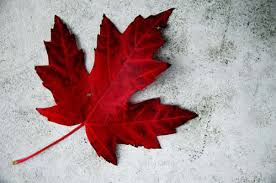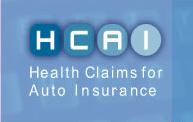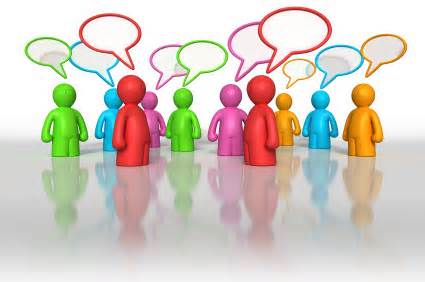
Author Archives: Cmaac
Antibiotic Resistance: Traditional Chinese Medicine Can Prevent Epidemics
Oct. 2013 Antibiotic Resistance: TCM Can Prevent Epidemics
By Martha Lucas, PhD, LAc
The US Centers for Disease Control and Prevention (CDC) are monitoring the soaring increase in what they call CREs (carbapenem-resistant enterobacteriaceae), which is a little known class of antibiotic-resistant bacteria.
Antibiotic resistance is nothing new; Alexander Fleming (penicillin founder) predicted it in the 1940s so physicians have used the most powerful antibiotics sparingly keeping them as a last resort. In my town, Denver at the University of Colorado Hospital there was the largest cluster of patients infected with the drug resistant Klebsiella bacteria; three patients with pneumonia and five who were asymptomatic carriers. The hospital is still trying to contact and test more than 1,700 patients who may have been exposed to that bacteria during a hospital stay. In a Brooklyn hospital 9 out of 19 patients died from an infection that was antibiotic resistant. Sometimes patients with antibiotic resistant bacteria can be given a cocktail of drugs but these are notorious for damaging the kidneys. Then the question becomes to treat or not to treat.
So what. This is just a bunch of hysterical talk, medical terrorism, a way for pharmaceutical companies to make more money by convincing us that we need to take more drugs – specifically antibiotics – every time we get some sort of infection. Many epidemiologists feel that it’s not too late to intervene (somehow) to prevent the CREs from becoming more common.
In step TCMs (Traditional Chinese medicines): what can we do to boost people’s immune function to prevent rather than treat infections? From a traditional standpoint we can do our best to protect people’ original qi beginning prenatally with treatment of the pregnant woman.
Chinese medicine treatment and nutritional advice will keep the mother’s digestion working well, qi and blood flowing, and emotional state in balance thereby fostering a healthy prenatal environment that will hopefully result in a full term healthy baby. For example, we could advise her to avoid really cold foods (eg., iced drinks) and foods that are cold energetically (eg. bananas). Once a child is born, encouraging healthy digestion is key. Digestion precedes the immune system in the pulses and when digestion/Earth is weak, the immune system suffers. And, when our digestion does not make good quality qi, our original qi suffers. Protect children’s original qi with acupressure, acupuncture, and nutritional advice. Other lifestyle advice may include keeping out of wind and away from air conditioning and protecting children (and adults) from excess damp conditions. These are steps toward building and protecting immune systems.
From the modern era, scientists have determined that acupuncture can enhance the body’s production of natural killer cells, our primary immune system defense mechanism. It also helps regulate white blood cell production, enhances platelet count while preventing leukocyte decrease in radiation therapy patients, and helps chemotherapy patients maintain healthy levels of T cells. Some studies have shown that TCMs perform dual roles on immunological regulation: immunological activation and immunological suppression.
A review by Ma and colleagues highlights studies that focused on “the immunomodulatory effects of TCMs describing their stimulatory effect on immune cells, immune organs, cytokine production, tumorigenesis, as well as their inhibitory function on inflammation, allergy, autoimmune disease, and graft rejection.” In their review they say that “components of both innate and adaptive immunity may be modulated by specific TCMs” and that “TCMs may have antitumor effects and may play a role in regulating apoptosis. Immunomodulatory effects of TCMs may lead to new medications to treat allergic and autoimmune diseases“.
In his article Acupuncture and Immunomodulation, Mehmet Cabioglu begins by reminding everyone that acupuncture is a well known form of medicine that is used for prevention and homeostasis. Studies on acupuncture and the immune system generally accept an increase in the release of endogen opioid peptides as a key pathway that affects the immune system after the acupuncture treatment. Cabioglu wrote his paper to look at other data that explain how acupuncture affects the immune system. He references a number of studies that show acupuncture treating immunodeficiency, increasing resistance to infection, reducing autoimmunity and hypersensitivity, and enhancing cellular immune function in patients who have malignant tumors. Further, acupuncture has demonstrated its effectiveness in treating a variety of immune related conditions including but not limited to Hashimoto’s thyroiditis, ulcerative colitis, and rheumatoid arthritis.
Most of the time when someone gets sick it’s because his or her immune system has become overwhelmed. Some bacteria, viruses, parasites invade so quickly that the immune system can’t manage the attack or the person’s immune system is somehow compromised – long term stress can do that. And we know that acupuncture can counteract the negative effects of stress and/or emotional anxiety thereby protecting the immune system. Can acupuncture prevent things like the flu or the common cold? I don’t think I’ve read any studies that suggest that. But there is enough evidence to say that acupuncture affects our immune systems in a positive way potentially make us better able to fight off infectious diseases. I know that my patients who receive regular acupuncture treatments, take herbs when recommended, and follow various lifestyle recommendations absolutely recover faster if they do catch a bug and suffer less severe and fewer symptoms than their colleagues who do not receive acupuncture. From a financial standpoint, this means fewer missed days of work. From a humanistic standpoint, it means fewer people to spread infectious diseases. Prevention.
References:
- Cabioglu, MT, Cetin, BE. Acupuncture and Immunomodulation. The American Journal of Chinese Medicine, Vol. 36, No. 1, 25–36
- Ma HD, Deng YR, Tian Z, Lian ZX. Traditional Chinese medicine and immune regulation, Clin Rev Allergy Immunol. 2013 Jun;44(3):229-41
- Xia YG, Zhang D, Yang CX, et al: An approach to the effect on tumors of acupuncture in combination with radiotherapy or chemotherapy. Journal of Traditional Chinese Medicine 6(1): 23-6, 1986.
- Ye, F, Chen S, Liu W: Effects of electro-acupuncture on T cell subpopulations, NK activity, humoral immunity and leukocyte count in patients undergoing chemotherapy. Journal of Traditional Chinese Medicine 27 (1): 19-21, 2007
- “Antibiotic Resistance: The Last Resort.” July 24, 2013. Nature.com: www.nature.com/news/
antibiotic-resistance-the- last-resort-1.13426
HCAI Update – Health Claims for Auto Insurance

Date: February 27, 2014
To: Health Care Facilities
Sunset Date Announced for Three Health Professions
As previously communicated, the unregulated versions of health professions that became regulated in 2013 would receive a ‘Sunset Date’ in HCAI.
On May 1, 2014, the ‘Sunset Date’ will take effect in HCAI for the unregulated versions of the following professions:
• Kinesiologist
• Acupuncturist
• Traditional Chinese Medicine Practitioner
How does the “Sunset Date” affect me and my business?
Once the ‘Sunset Date’ takes effect, only Providers using the ‘Regulated’ version of the above professions or another valid profession will appear on Ontario Claims Form (OCF) dropdowns within HCAI.
- Providers must update their details with the ‘Regulated’ version of the professions by May 1, 2014.
- Saved drafts of OCFs that use the unregulated version of the profession will still show the Provider, but these OCFs cannot be submitted.
Next Steps
- Review HCAI’s September 2013 Bulletin and October 2013 Newsletter for information about the above-noted Regulated Health Professions in HCAI.
- Ensure individuals at your health care facility that are affected by this change have received a registration number from their Health Regulatory College.
- Review the instructions on how to update a Provider’s information in HCAI. HCAI Operations
Draft By-Law Amendments Response Deadline: Mar. 31, 2014

In this DRAFT by-law amendment, a membership increase for 2014-2015 has been recommended by the CTCMPAO from $850 to $1100. There are currently 2077 members which means they are getting at least $1,765,450 not including all other costs, and they want to increase it to $2,099,847. On top of this, they still want to keep increasing the membership fee by percentage increase according to the Consumer Price Index every year. (According to this year it should be 2%).
It was stated in the draft that:
‘Over the next year, the College anticipates significant changes to expenditures for the College, including costly committee work (Inquiries, Complaints and Reports Committee, Discipline Committee, Fitness to Practice Committee, Patient Relations Committee and Registration Committees), dealing with issues of unauthorized practice, office relocation and legal costs’
Please click here to read the Draft By-Law Amendments and check the CTCMPAO Website for their activities.
It’s important that we provide our feedback,whether you support this or not, because once the by-law is amended, it will be difficult to repeal.
How?
Preferably by email to registrar@ctcmpao.on.ca, using the instructions noted in the stakeholder feedback form.
Alternatively, you may fax your submission to 416.874.4078 or mail your submission to:
By-Law Amendments Feedback
College of Traditional Chinese Medicine Practitioners and Acupuncturists of Ontario
163 Queen Street East
Toronto, ON M5A 1S1
Or, do you have a few suggestions that CMAAC should write on behalf of our members? Please provide a few points by contacting:
Jane Cheung, R.TCMP
Vice-President (External Relations)
jane.cheung@cmaac.ca
Response to the New Code 244991 for ‘Acupuncture Services’ from RCMP Program of Choice (POC) 12- Related Health Services Services
On January 1, 2014, The Royal Canadian Mounted Police has released their new Program of Choice (POC)12- Related Health Services. Their members can now have access to acupuncture by Acupuncturists; however, the new code 244991 indicates a referral is required by a medical doctor. As acts varies somewhat in each provinces, Ontario is regulated under the Regulated Health Profession Act (RHPA) which requires the Acupuncture and TCM to be independent from other regulated health professions in Ontario. Hence the need for medical doctor referrals is unnecessary and not current with the regulations.This letter serves as a necessity to clarify our positions in healthcare in Ontario so that people are clear in their options and are best equipped to choose the healthcare they deserve.
This letter has been submitted and prepared by the Chinese Medicine and Acupuncture Association of Canada (CMAAC). We want to acknowledge and appreciate the support of this campaign from The Canadian Society of Chinese Medicine and Acupuncture (CSCMA) and Traditional Chinese Medicine Physicians Association of Canada (TCMPAC). Together we stand united in our belief of using acupuncture effectively and appropriately and to offer patients the best healthcare possible.
Please click the link below to read the letter. Show your support by forwarding this letter to your group and colleagues. Thank you!
Response letter to RCMP
Finally! GST/HST-Exemption for Acupuncture Approved

We applaud the federal government for exempting GST/HST on services provided by acupuncturists. Having patients pay taxes on their treatment of choice is not agreeable with the acupuncturists or their patients, and we are glad that the federal government agree.
Thanks to our combined efforts as part of the Canadian Coalition of Acupuncture and TCM Associations (CCTAA), we have succeeded in making acupuncture performed by acupuncturists and TCM practitioners exempted from GST/HST! The CCTAA was formed by the joint efforts of Acupuncture and TCM associations from across Canada.
The CCTAA would like to acknowledge everyone who contacted their MPs over the past few weeks ahead of this historic announcement by Minster of Finance Jim Flaherty which occurred on Feb. 11, 2014. In particular, this could not have happened without the 30,000 signature petition collected over the years by members of the Association des Acupuncteurs du Quebec (AAQ) which proved to our Federal Government the significant improvements to patient choice and access that this GST/HST exemption would allow.
Feb. 11, 2014, Parliament Hill – Stakeholders Lock-Up
As one of the stakeholders in regards to the GST/HST-Exemption Campaign, CMAAC was invited by the Department of Finance to attend the Stakeholders’ Lock-up on Feb. 11, 2014. This event allowed us to have access to the budget before it was tabled to the House of Commons. Since the event took place at the Parliament Hill in Ottawa, Ontario, it was meaningful that one of our Ontario representatives attended this event – not just on behalf of the CMAAC but also for our sister organizations and fellow colleagues across Canada. Thanks to our member, Connie Siedule, of Ottawa who was our representative there. She rescheduled her working hours to attend and provided us a report with these following key points :
- The exemption was tabled and introduced with Budget 2014 and is expected to pass into law without issue. Technically the exemption is effective Feb. 12, 2014 however, we are advised to continue to collect GST/HST until we have confirmation of the bill formally passing. We also expect further instruction from the Canada Revenue Agency to be posted to its website any day now.
- With regards to TCM practitioners and the exemption, we were advised to pay attention to the specific wording of the exemption which refers to ‘professional services by acupuncturists’. This means that TCM services (e.g. herbs) are not exempt – it only applies to acupuncture and acupuncturists. Also we will have to see how the Canada Revenue Agency defines ‘acupuncturist’ which has a specific meaning as a protected title in provinces with TCM/A regulation. Your provincial College, where applicable, may also provide information updates along these lines.
The proposed GST/HST exemption on acupuncture can be found on the Government of Canada website ‘Annex 2 – Tax Measures: Supplementary Information, Notice of Ways and Means Motion and Draft Amendments to Various GST/HST Regulations’(under Sales and Excise Tax Measure > scroll 3/4 down the page).
We understand there are naturally going to be a lot of questions from our members but we ask that you please wait patiently; our much-needed answers are not yet available but will come in due time.
CMAAC

